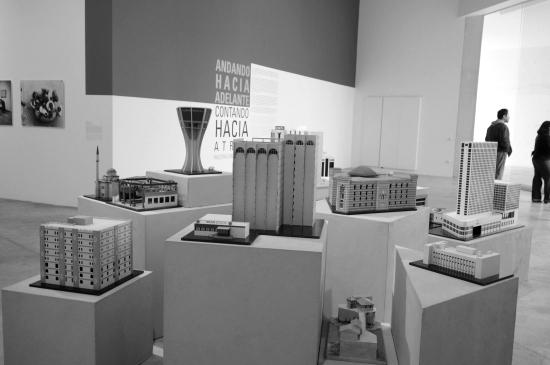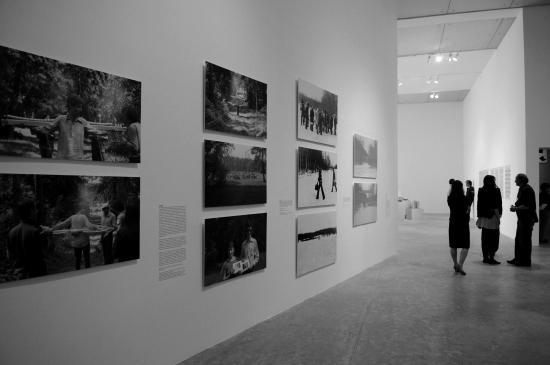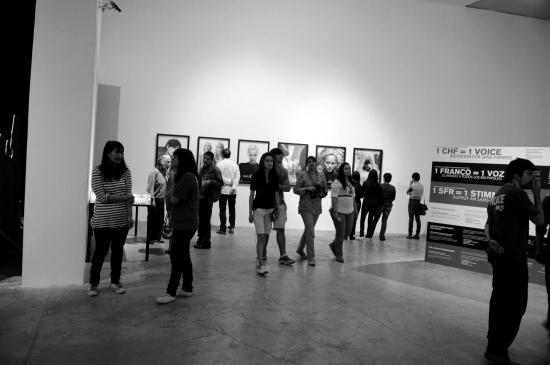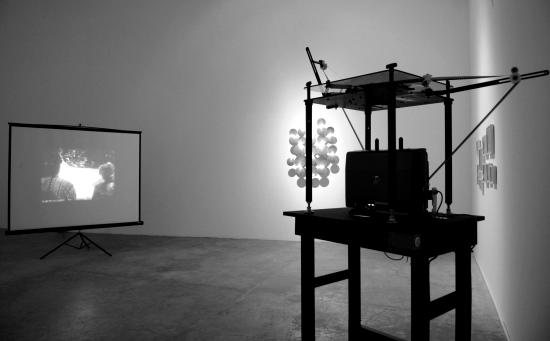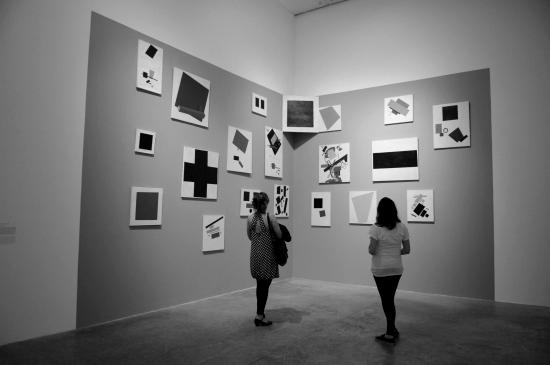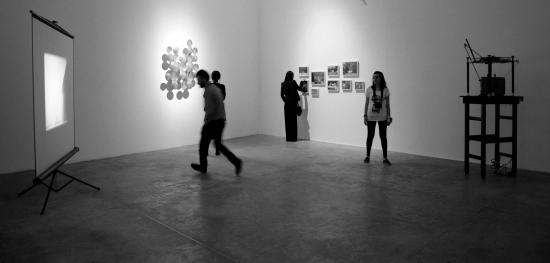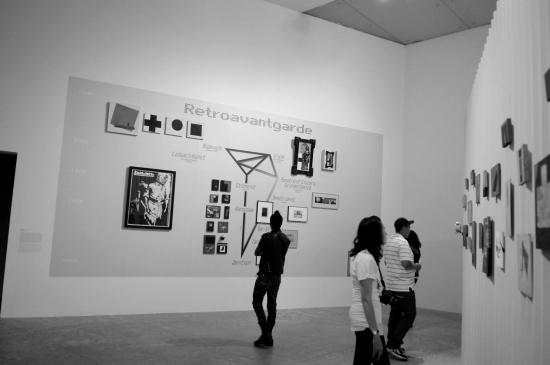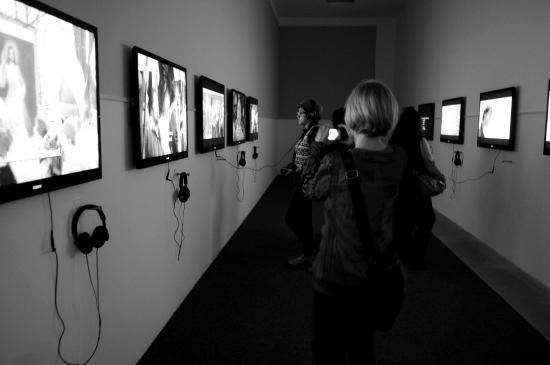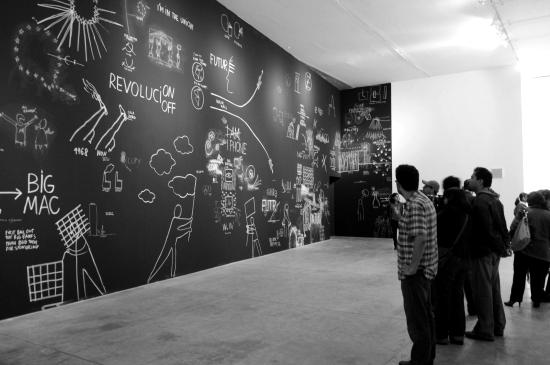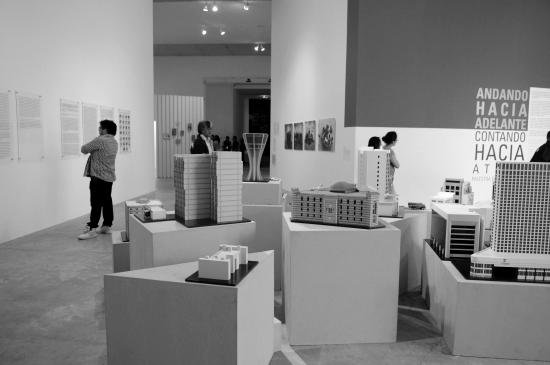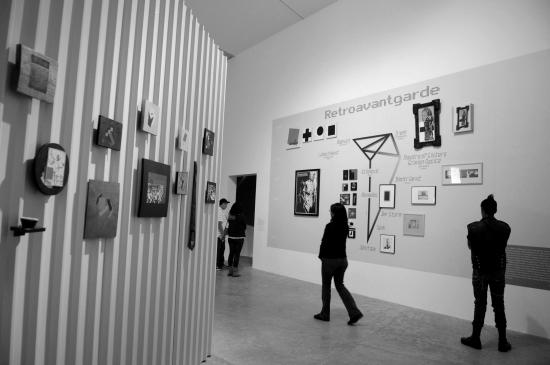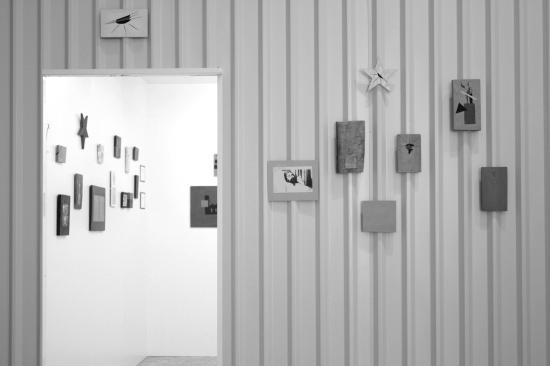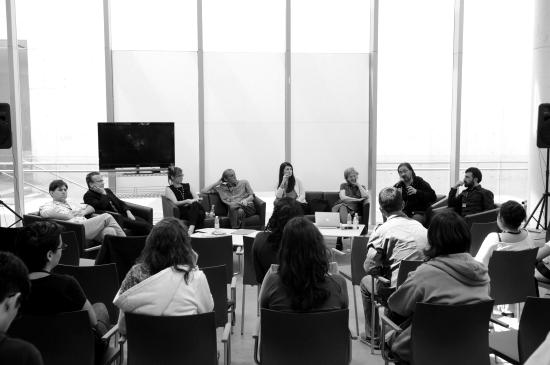Moving Forward, Counting Backward
Moving Forwards, Counting Backwards
Palestra Eastern Europe
Commissioned for the MUAC’s ‘Phantasmas of Freedom’ exhibition cycle
February 25 – May 05, 2012
Vojin Bakić, Walter Benjamin, Chto Delat? & Vladan Jeremić, Collective Actions, Gorgona, Igor Grubić, Tibor Hajas, IRWIN, Sanja Iveković, Julius Koller, Andreja Kulunčić, David Maljković, Kazimir Malevich, Ahmet Ogut, Dan Perjovschi, Anri Sala, Mladen Stilinović, Nicoline van Harskamp, Želimir Žilnik, Artur Zmijewski
Curators: Ivana Bago & Antonia Majača (DeLVe | Institute for Duration, Location and Variables)
Associate curator: Alejandra Labastida (MUAC)
Today, many years after the Iron Curtain has been replaced by Fortress Europe, the so-called Eastern Europe still triggers only associations of the past and the abandoned communist future. This past future has been replaced by the promise of a pan-European freedom and democracy, and the once ‘lived utopia’ by a blank screen and the discourse of continuous transition, belatedness and inadequacy.
The exhibition enfolds around the dialectics and tensions between the legacy of communist and socialist political projects and their dissolution into the cacophony of Western neoliberal democracies. At the same time it traces the link between the avant-gardes and their ‘polluted’ leftovers, exhausted signs and ghostly remainders. It opens with a haunting juxtaposition of a ‘universal futurological question mark’ by Slovak artist Julius Koller from 1970s and the impossible attempt of a future resurrection of the countless ruins of the 1990s by Ahmet Ogut. It ends with the wall drawings by Dan Perjovschi, juxtaposing the multiplicity of fragmentary narratives, question marks and “puzzles” that constitute our common present.
The exhibition’s narrative is constructed around several layers of soft dialectics between the universalist and international ideas of communism, collectivity and solidarity, the modes of its potential rescue (in the works of Collective Action, Gorgona group, van Harskamp), its erasure from individual and collective memory (Ivekovic, Sala), the survival and bastardization of its forms (Benjamin, Malevich, Stilinovic, Irwin, Maljkovic, Grubic), the question of individual freedom and identity (Hajas), and finally, the cacophonic neo-liberal democratic paradox in which the categories of the ‘identity’, ‘adversary’ and ‘victim’ play a central role (Zmijewski, Kuluncic, Chto Delat? & Jeremic, Zilnik).
With the crisis of democracy and neoliberalism, the future and past ruins on both (imaginary) sides of Europe, the spectres of the ideals of internationalism, equality, solidarity and freedom are again resurfacing. The question is – what exactly can emerge on the horizon of the new, Europe, united today by the precarious present and the gloomy prospects of future? What can be imagined and built today and tomorrow? The physical dispositon of the exhibition at MUAC opens a number of possible paths across - and perhaps beyond - the social, political and ideological ‘ruins’ on ‘both sides’ of the short 20th century - that of the failed socialist states and that of the failing neoliberal democracies.
Supported by: MUAC, ERSTE Stiftung, Mondriaan Foundation, Ministry of Culture Republic of Croatia, City of Zagreb - City Office for Education, Culture and Sport.


